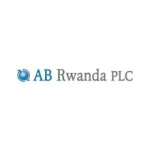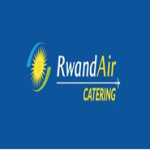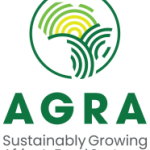The Deutsche Gesellschaft für Internationale Zusammenarbeit (GIZ) GmbH has been working in Rwanda for more than 40 years.Rwanda is a country with a turbulent and, at times, tragic history, and the impact of the 1994 genocide is still felt today. Nevertheless, Rwanda has achieved progress at a number of levels since 2000. Stability, security, steady economic growth and low corruption are some of the key successes. The country is also regarded as a pioneer in Africa in environmental protection, digitalisation and gender equality.Despite these encouraging developments, however, Rwanda is still a very poor country that continues to rely on international support. This support is in virtually all sectors and is coordinated by the Rwandan Government. As a reliable partner in an efficient task-sharing system, GIZ works in three priority areas on behalf of the German Government:
Expression of Interest (EOI)
Consultancy services for Technical Assessment of AMR Surveillance Systems and Architectural Analysis of Health Information Systems.
Reference Number:83475230
Publication date: 10.10.2024
Introduction
The Deutsche Gesellschaft für Internationale Zusammenarbeit (GIZ) GmbH is a federally owned international cooperation enterprise for sustainable development with worldwide operations. The GIZ Office in Kigali covers GIZ’s portfolio in Rwanda and Burundi. GIZ Rwanda/Burundi implements projects on behalf of the German Federal Ministry for Economic Cooperation and Development, the European Union and other commissioning authorities in the following priority areas: Sustainable Economic Development; Good Governance; Climate, Energy and Sustainable Urban Development; Digitalization and Digital Economy; and regional projects in the Great Lakes Region.
About GIZ and GIZ Rwanda’s One Health Data Alliance Africa (OHDAA)
The Deutsche Gesellschaft für Internationale Zusammenarbeit (GIZ) GmbH is a federally owned international cooperation enterprise that operates worldwide for sustainable development. GIZ has worked in Rwanda for over 30 years. The primary objectives of the government of Rwanda and the Federal Republic of Germany are poverty reduction and promoting sustainable development. To achieve these objectives, GIZ Rwanda is active in Decentralization and Good Governance, economic development and Employment Promotion, Energy, and ICT (Information and Communications Technology).
GIZ Rwanda’s One Health Data Alliance Africa (OHDAA)
The OH approach is based on the understanding that human, animal and environmental health are closely interrelated. It thus contributes to the implementation of the BMZ 2030 reform concept (initiative topic “Health, Pandemic Control and One Health”) and the strategy paper “Initiative Topic One Health in Development Cooperation”, which was published in 2021. In the BMZ’s Agenda 2030 topic model it is related to the new core topic 6 “Health, Social Security and Population Policy” in the field of action 1 “Health, Pandemics and One Health” and additionally to the initiative topic “Digitalisation and Data”. The OHDAA project, commissioned by the German Federal Ministry for Economic Cooperation and Development, is a regional initiative to leverage technology and data to safeguard human, animal, and environmental health in Africa. In collaboration with the African Union, Regional Economic Communities, and African nations, OHDAA enhances the use of data to support early warning systems, surveillance, policy-making, and targeted interventions. This project unites human, animal, and environmental health experts with data and digitalisation specialists to create intelligent solutions within the evolving One Health Data domain. By building on existing data and information systems, OHDAA promotes data integration, system interoperability, and the application of data analytics, artificial intelligence, and innovative tools.
Rwanda has been selected as a key country for OHDAA implementation due to its strong commitment to ICT and digital development, the availability of One Health data, and the existing GIZ portfolio in the digital sector. The OHDAA Rwanda team collaborates closely with the Rwanda Biomedical Centre (RBC), the organisation responsible for implementing innovative health interventions to safeguard the nation against diseases and other health threats. RBC’s One Health Unit and the Government of Rwanda One Health Committee prioritised Antimicrobial Resistance (AMR) as one of the key health concerns, underscoring the necessity for enhanced surveillance and response measures in 2024.
Context
In recent years, Rwanda has made significant strides in public health surveillance. The country’s Electronic Integrated Disease Surveillance and Response (E-IDSR) system has been pivotal in enhancing early detection and rapid response to public health threats, including AMR. Despite these advancements, the (E-IDSR) system needs more seamless integration with the health information systems operating at the facility level. This disconnect hinders the comprehensive collection of clinical data, which is essential for accurate AMR surveillance, analysis, and response. To address this challenge and optimise AMR surveillance, we will conduct a preliminary project: an AMR Surveillance assessment and an architectural system analysis of health information systems used at various health facility levels to establish the ground for integration and interoperability.
About the AMR Surveillance Assessment
This project is designed to evaluate Rwanda’s system for AMR surveillance. AMR occurs when bacteria and other microbes become resistant to the drugs used to fight them, making infections harder to treat and increasing the risk of death. This assessment will examine all aspects of Rwanda’s AMR surveillance process and architecture, including how data on AMR is collected, analysed, and utilised to inform policy and practice. The goal is to identify potential gaps in the system and develop recommendations for improvement, strengthening this system to enhance Rwanda’s defences against AMR.
About the Rwanda Health Information Systems Architectural Analysis
The Health Information Systems Architectural Analysis Project aims to evaluate the feasibility of integrating health information systems with Rwanda’s AMR surveillance system. This project will thoroughly analyse the current health information infrastructure, identifying key systems that can provide valuable clinical data for AMR monitoring. By assessing these systems’ compatibility, interoperability, and data-sharing capabilities, the project seeks to determine the best approaches for seamless integration. This will ultimately enhance the AMR surveillance system’s ability to gather real-time clinical data, leading to more informed decision-making and improved public health outcomes.
In this context, GIZ’s OHDAA Rwanda project, in partnership with the RBC OH unit, is looking for a competent technical consulting firm to carry out this assignment.
The objective of this assignment
The primary objective of this assignment is to provide technical support to RBC’s OH unit in its efforts to enhance Rwanda’s ability to detect, monitor, and respond to Antimicrobial Resistance (AMR) through improved data integration and system interoperability. This will be achieved by evaluating and strengthening existing health information systems, promoting advanced data analytics and artificial intelligence use, and fostering collaboration among human, animal, and environmental health experts. Ultimately, the project aims to create a robust, responsive, integrated AMR surveillance system that can inform policymaking and improve health outcomes for the Rwandan population.
Objective
Scope of work
Tasks to be performed by the contractor.
|
Intervention Area 1: AMR Surveillance Assessment |
|
Work package 1: Initial Assessment and Stakeholder Engagement Tasks:
Deliverables:
Work Package 2: AMR Surveillance System Optimization Tasks
Deliverables
Work package 3: Presentation of findings to partners and stakeholders Tasks:
Deliverables:
|
|
Intervention Area 2: Architectural Analysis of all Health Information Systems relevant to AMR Surveillance |
|
Work package 1: Initial Assessment and Stakeholder Engagement Tasks:
Deliverables:
Work package 2: System Architecture Analysis Tasks:
Deliverables:
Work package 3: Data Integration Feasibility analysis Tasks:
Deliverables:
Work package 4: Recommendations and Implementation Roadmap Development Tasks:
Deliverables:
Final Reporting and Presentation Tasks:
Deliverables:
|
The project focal person(s) will review and approve these deliverables at each stage to ensure alignment with the project objectives and requirements.
Upon contract signature, the GIZ and/or its key stakeholders will assign a focal person(s) to manage this assignment day-to-day. S/he will brief the contractor and share expectations on the outcome of this assignment. The contractor shall propose a plan and timeline for implementing both projects within 5 working days.
Certain milestones, as laid out in the table below, are to be achieved by specific dates during the contract term:
AMR Surveillance Assessment
|
Work packages |
Duration |
|
Initial Assessment and Stakeholder Engagement |
10 expert days |
|
Presentation of findings to partners and stakeholders |
7 expert days |
|
Work packages |
Duration |
|
Initial Assessment and Stakeholder Engagement |
10 expert days |
|
AMR Surveillance System Optimization |
20 expert days |
|
Presentation of findings to partners and stakeholders |
7 expert days |
Health Information Systems Architectural Analysis
|
Work packages |
Duration |
|
Initial Assessment and Stakeholder Engagement |
10 expert days |
|
System Architecture Analysis |
20 expert days |
|
Data Integration Feasibility Analysis |
15 expert days |
|
Recommendations and Implementation Roadmap Development |
10 expert days |
|
Final Reporting and Presentation |
7 expert days |
The selected contractor must complete the project within three and a half (3) months of contract signing.
Period of assignment: from contract sigining until 28.02.2025 .
GIZ owns all intellectual property rights, the complete platform and database content, and all work performed under this assignment’s service contract.
Concept
In the bid, the bidder is required to show how the objectives defined in Chapter Error! Reference source not found. are to be achieved, if applicable, under consideration of further specific method-related requirements (technical-methodological concept). In addition, the bidder must describe the project management system for service provision.
Technical-methodological concept
1.1 Strategy:
1.1.1 The bidder is required to consider the tasks to be performed with reference to the objectives of the services put out to tender (see Chapter Error! Reference source not found.).
1.1.2 Following this, the bidder presents and justifies the strategy with which it intends to provide the services for which it is responsible
1.4 Processes
1.4.1 The bidder is required to describe the key processes for the services for which it is responsible. In particular, the bidder is required to describe the necessary work steps.
1.6 Project management
1.6.2 Project management of the contractor
The bidder is required to explain its approach to coordination with the GIZ project. GIZ will provide one contact person for the contractor. The explanations of the bidder shall consider the following minimum standards to be met by the contractor:
- The provision of at least one contact person for GIZ
- The existence of substitution management
- Daily availability by phone (on workdays)
- The response to emails within 24 hours
- Weekly availability for a physical or virtual meeting
- Weekly progress reporting (verbal or written)
- The submission of quality-assured deliverables at least three workdays before the approval is due to be made (all deliverables need approval from GIZ)
- The selection, preparation, training and steering of the experts assigned to perform the advisory tasks.
- The management of costs and expenditures, accounting processes, and invoices is in accordance with GIZ’s requirements.
Personnel Concept
The bidder is required to provide personnel who are suited to filling the positions described, based on their CVs, the range of tasks involved and the required qualifications.
The qualifications below represent the requirements to reach the maximum number of points.
Team Lead
Qualifications required.
- Education/training (2.1.1): University qualification (master’s or equivalent): 5+ years of professional experience in data integrated systems.
- Language (2.1.2): Good business language skills in N/A
- General professional experience (2.1.3): 5+ years of professional experience in the IT sector
- Specific professional experience (2.1.4): 3+ years of experience in IT system architecture
- Leadership/management experience (2.1.5): 2+ years of management / leadership experience as project team leader or manager in a company
- Regional experience (2.1.6): N/Aof experience in projects in (region): N/A, of which N/Ain projects in (country): N/A
- Development Cooperation (DC) experience (2.1.7): N/A
- Other (2.1.8): N/A
Expert 2: Health Informatics analyst
Qualifications required.
- Education/training (2.2.1): University qualification (master’s or equivalent): 5+ years of professional experience in data integrated systems.
- Language (2.2.2): Good business language skills in N/A
- General professional experience (2.2.3): 5+ years of professional experience in the IT sector
- Specific professional experience (2.2.4): 3+ years of experience in health informatics
- Leadership/management experience (2.2.5): 2+ years of management / leadership experience as project team leader or manager in a company
- Regional experience (2.2.6): N/Aof experience in projects in (region): N/A, of which N/A in projects in (country): N/A
- Development Cooperation (DC) experience (2.2.7): N/A
- Other (2.2.8): N/A
Costing requirements
The bidder is required to calculate their financial tender based exactly on the parameters specified in the inputs. The contractor is not contractually entitled to use up the days or budget in full. The number of days and the budget will be contractually agreed as maximum limits.
The bidder must also provide an estimation of the quantity of web tools, plugins, SSL certificates, and any additional tools necessary to fulfil the project requirements outlined in the inputs.
|
Fee days |
Number of experts |
Number of days per expert |
|
Designation of Team leader |
1 |
60 |
|
Designation of Key expert: Health Informatics Analyst |
1 |
60 |
Requirements on the format of the bid
The structure of the bid must correspond to the structure of the ToR. In particular, the detailed structure of the concept. The bid should be drawn up in English (language).
The CVs of the personnel proposed in accordance with the Personnel Concept section of this ToR must clearly show the position and job the proposed person held in the reference project and for how long. The CVs should also be submitted in English (language).
Contact
If you have questions about the assignment, please contact procurement-rw@giz.de. Please note that we only point to publicly available information for a fair tender process.
Application
The Expression of Interest will be evaluated based on the following criteria:
- Individual profile,
- Relevant experience,
- Your strategies to assure agility, flexibility, and responsiveness,
- Personnel offer
- Financial offer.
The EoI should contain the following:
For Technical Proposal:
- A Cover letter expressing interest in this assignment.
- Technical Proposal with a brief description of why you would be considered as the most suitable for the assignment, relevant expertise, and a detailed clear methodology, on how will be your approach and complete the assignment. It should be formatted, font type ARIAL, font size 11, and should be clearly formulated. The offer should be drawn up in English language.
- The CVs shall not exceed 4 pages.
- Business /company registration certificate
- Tax clearance certificate.
- References and recommendations of similar works executed in Rwanda for the Financial Proposal:
The Financial Proposal indicates the all-inclusive total contract price, supported by a breakdown of all costs. The cost must be in Rwf, and VAT must be excluded.
Annex / Attachments
Submission of offer: The Expression of Interest should contain the following:
Technical Proposal:
- A cover letter expressing your interest in this assignment
- Technical proposal with a brief description of why you would be considered as the most suitable for the assignment, relevant expertise, and a detailed, clear methodology, your approach to complete the assignment, template attached.
- Company registration certificate (RDB)
- VAT-Registration Certificate
- Latest tax clearance certificate
- Proof of successful completion of related assignments.
Financial Proposal: The price per service category must contain all relevant costs supported by a breakdown of each cost. The costs must be in RWF and VAT
Please submit electronically your EoI (technical & Financial offer) in 2 separated emails and should be in PDF files to this email ONLY: RW_Quotation@giz.de until latest 27th October 2024
Please you should write on each email subject this sentence:
83475230 Technical/financial offer, without this sentence, your offer may not be considered
Hard copies are not allowed this time
GIZ reserves all rights
Attachment





